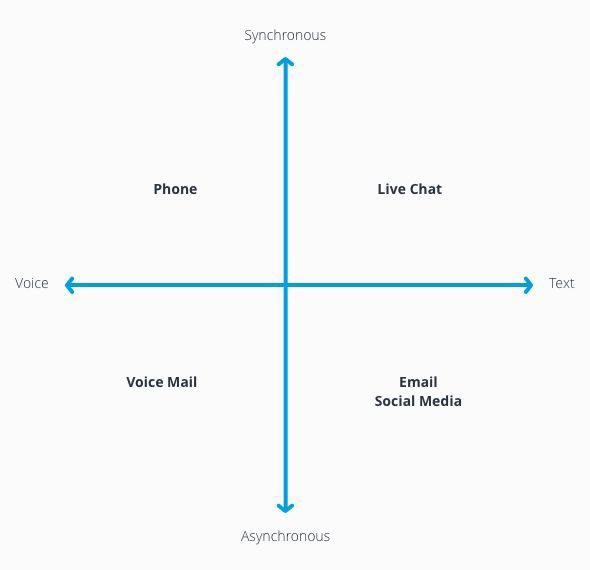Good day awesome steemians, in my last post, I talked about softskill as a valuable tool for both personal and organisational growth. Today I'll be sharing with us a very important part of business that may have been treated as trivial but is very key if an organisation must continue to be relevant in the its industry. It's quite an extensive writing but I'd love you to read through as it contains very useful information.

*⃣ Customer service is the act of taking care of the customer's needs by providing and delivering professional, helpful, high quality service and assistance before, during, and after the customer's requirements are met. Customer service is meeting the needs and desires of any customer.
*⃣ Customer service can also be defined as the assistance and advice provided by a company to those people who buy or use its products or services.
👉An organization wanting to provide error-free customer service will invest as much money in it as they do on aspects such as product development or sales and marketing.
👉Organizations that provide spectacular customer service tend to be more popular among their clientele than their competitors.
👉For example, by using a customer service survey, a brand can evaluate the level of service that a customer received while interacting with them. Conducting this survey is beneficial to retaining customers as well as map out areas of service that require improvement.
*⃣ Good customer service is the foundation of any successful organization. It’s that one entity that complements every other aspect of customer outreach including promotional and branding activities. Better customer service will lead to an improved Net Promoter Score, which is an indicator of superior brand shareability and recommendations.
*⃣ Good customer experience is built by giving structure to all the customer interaction points according to organizational culture or need for digitization or any such components. Aligning various customer-facing processes to create an enhanced customer experience might end up consuming a significant amount of dedicated time and effort from an organization’s management as well as other employees.
No matter your business size or industry, your customers have one thing in common: their humanity.
Every customer is a person who has taken the time out of the hustle and bustle of their hectic day to interact with your brand. And, each person wants to feel respected and appreciated.
Employees with these customer service skills do more than create transactions, they create positive customer experiences. Alternatively, companies who don’t value and empower these skills can find themselves sliding down a slippery slope.
Here, we’ll look at the following customer service skills critical to maintaining and growing your company and will disscuss the skills below👇👇

Some Important Customer Service Skills
Empathy
Communication skills
Product knowledge
Problem-solving skills
Patience
Listening skills
Confidence
Adaptability
Desire to learn
Professionalism
Acting ability
As we go through some of the important skills, think of each skill as a thread, once weaved together, they create a support network every client can reach with the confidence they’ll find what they need.
With that, let’s get started with the very first important customer service skill:
*⃣ Empathy: The ability to understand and share the feelings of another is more of a character trait than a skill. But empathy can be learned and improved upon. When you can’t tell the customer exactly what they want to hear, a dose of care, concern, and understanding will go a long way. A support rep’s ability to empathize with a customer and craft a message that steers things toward a better outcome can often make all the difference.
*⃣ Clear communication skills:
Service reps must be able to explain the potential solutions to customers’ problems, and do so in a clear, concise manner.
Clear communication skills mean speaking without jargon, especially if it’s terminology specific to your company. Those who communicate well also understand when their point isn’t getting across and know how to offer alternative explanations if the original doesn’t make sense.
On the technical side, when it comes to verbal communication, those speaking to customers in person or on the phone must also speak clearly – no mumbling allowed!
Non-verbal communications also come into play during these conversations, even when they’re on the phone.
The remaining elements of communication come down to non-verbals signals you give people. 38% of these include voice and tone. In order words, “It’s not what you say, it’s how you say it. The remaining 55% depends on body language.
*⃣ Product knowledge:
While it may seem like a given, product knowledge is a crucial element that can’t be ignored. Regular training and product updates to give your reps a true understanding of your product, as well as any product changes that will affect customers, is key to the success for your company.
In order to truly help people, your reps must be able to give accurate and up-to-date information about your product or service.
*⃣ Professionalism: When a customer has a problem, they don’t care about the fact that your customer service agent didn’t sleep last night, broke up with their boyfriend, or had a fight with their mom.
As soon as that phone is picked up, all personal problems are left behind. It’s time to put on a smile (even over the phone!) and focus on the needs of the customer first.
*⃣ Problem-solving skills:
In essence, problem-solving is what customer service is all about.
While there are many problem-solving models, those interacting with customers need to be quick on their feet. There’s no time for group brainstorming. Your clients want their problems fixed and they want them fixed now.
Here is an example of the problem-solving process that applies to customer service;
If somebody writes in because they’re having trouble resetting their password, that’s ultimately because they want to log into their account.
A good customer service interaction will anticipate that need and might even go the extra mile to manually perform the reset and provide new login details, all while educating the customer on how they can do it for themselves in the future.
In other situations, a problem-solving pro may simply understand how to offer preemptive advice or a solution that the customer doesn’t even realize is an option.
*⃣ Listening skills: Even though a rep might face the same problem 15-to-20 times daily, it is imperative they still listen to each person and each call.
Customer experiences vary from person to person. A problem may be common, but that doesn’t mean that’s this customer’s problem.
If your customer service representatives are making assumptions, you’ll find yourself with customers who are increasingly agitated.
In addition to not assuming, consider the following ways to improve listening skills:
Asking questions, taking notes, and avoiding interruptions are all excellent tactics to improve active listening.
*⃣ Confidence: Customers will have faith they are getting the right answer (and one that will work!) when they talk to someone with confidence.
Confident employees are a positive reflection on your brand, increasing your company’s trust and credibility. Proper training and internal communication channels to troubleshoot new customer issues as they arise will naturally give reps the confidence to excel.
*⃣ Desire to learn: Over time, your product, service, and procedures will continue to change. You need customer service employees who are both ready and willing to learn. Support reps are the front line, educating customers about changes.
Like the other customer service skills that apply to all employees, those eager to learn show that positive attitude. In addition, this trait shows a commitment to the investment you have made in an employee and the sincere desire to advance their career.
Plus, when you provide employees with opportunities to learn, their appreciation will show in the high levels of customer service they provide.
Customer service comes down to caring. Having empathy to understand the situation of each person a rep interacts with and the authentic desire to help them will go a long way.
Consider this marketing quote by Amazon CEO Jeff Bezos: “We see our customers as invited guests to a party, and we are the hosts. It’s our job every day to make every important aspect of the customer experience a little bit better.”

Good customer service has four key qualities: It’s personalized, competent, convenient, and proactive. These four factors have the biggest influence on the customer experience.
✅ Personalized: Good customer service always starts with a human touch. Personalized interactions greatly improve customer service and let customers know that your company cares about them and their problems. Instead of thinking of service as a cost, consider it an opportunity to earn your customer’s business all over again.
✅ Competent: Consumers have identified competency as the element that plays the biggest role in a good customer experience. To be competent, a customer support professional must have a strong knowledge of the company and its products, as well as the power to fix the customer’s problems. The more knowledge they have, the more competent they become.
✅ Convenient: Customers want to be able to get in touch with a customer service representative through whichever channel is the most convenient for them. Offer support through the channels of communication your customers rely on most, and make it easy for customers to figure out how to contact you.
✅ Proactive: Customers want companies to be proactive in reaching out to them. If one of your products is backordered or your website is going to experience downtime, proactively reach out to your customers and explain the problem. They may not be happy about the situation, but they will be thankful that you kept them in the loop.
By building your customer service strategy around these four main principles, you’ll create a positive, hassle-free customer experience for everyone who deals with your company.

When 86% of customers quit doing business with a company due to a bad experience, it means that businesses must approach every support interaction as an opportunity to acquire, retain, or up-sell.
Revenue increases with good customer service
Revenue dictates every business decision. Companies measure success or failure based on money in minus money out. Profitability is king, regardless of whether it happens on day one or day 1001.
The number one reason why customer service is important in a business is because it correlates to revenue.Happy customers build a better reputation
Positive reputation leads to higher growth. Reputation goes a long way in a business. It attracts customers, investors, partnerships, and employees. When seeking to improve reputation, start with excellent customer service.
After a positive customer experience, 69% would recommend the company to others.Retention correlates to customer satisfaction.
Customer retention carves the clearest path to business success. Keeping current customers happy results in more stable revenue and more accurate predictions. When you master not just attracting customers, but retaining them, it sets a solid foundation for your entire organization.
And, why is customer service important to retention? 75% of people would return to a company with excellent service.
Marketing spend lessens with more customer advocates.
Customer marketing involves turning existing customers into advocates. Save money and time with every loyal customer. Not only do they purchase more, but they also bring in new business.
Your customers become your sales reps.
In fact, 56% of people would recommend a company with excellent service to family and friends.Brand awareness soars with positive customer experiences.
Popularity doesn’t lose its significance after you leave high school. If anything, once you enter the business word, it’s value compounds.
The coolest brands on the blocks — meaning, those with the most and best brand awareness — get all the fame and fortune.
Positive customer experiences play a huge role in brand awareness, as they often lead to word of mouth advertising. 55% of customers become a customer of a company because of their reputation for great customer service...

Employees have an integral part to play in customer service. Customer-facing teams such as customer service teams or sales teams should be trained regularly to polish their customer satisfaction skills. Factors such as their communication capabilities, principles at work, subject matter expertise, problem-solving skills, etc. should be analyzed at regular intervals.
Keep all the employees engaged.
When people are financially invested, they want a return. When people are emotionally invested, they want to contribute. Unless and until, employees are valued, respected, and regularly engaged, they are less likely to deliver to the best of their capabilities. Unhappy employees may not talk about their displeasure openly and so, the management can send online surveys using employee satisfaction. This way, the anonymity of employees can be preserved, enabling them to provide honest and clear feedback.An organization must strive to provide an amazing customer experience at every point of contact. Develop a 360 degree view on areas of customer service that are working efficiently and the ones that need improvement. This will make it easier for a manager to work on drawbacks and keep customers happy at every point of contact.
Building a dependable relationship with customers is in turn dependent on developing excellent internal customer service skills. The representatives can be trained to ask the right questions to find a common interest with customers or to understand customer problems actively and solve them in real-time or regularly following up with clients even after their problems have been resolved. This can also help in continually improving products and services.
Send satisfaction surveys to a target clientele with which they can share their experience with the organization. Feedback received from these surveys can be used to create plans to improve customer experience the next time they make a purchase from an organization.

If someone you're trying to serve resorts to rudeness, it can be difficult to know how to react. Even if you deal with customers and clients on a regular basis, a burst of hostility can come as a shock, and you can quickly find yourself in a difficult position.
How do you manage your own feelings, so that you calm the situation and start looking for a solution? When do you make concessions, and when should you refuse to budge? Afterward, what's the best way to recover? And how can you prevent a similar situation arising again?

Kesiena:
✅ Stay Calm, Don't React:
The first thing to do is to remain calm and not respond in kind. If you're faced with an unexpected verbal attack, a natural defense mechanism is to "bite back." Research suggests that rude customers "can violate an employee's sense of dignity and respect, and trigger negative emotions that can motivate employees to react negatively."
So avoid "fighting fire with fire." And be tactful , or you risk inflaming the situation further. Something as simple as taking some deep breaths will give you a vital few seconds to gather your thoughts and avoid retaliating in a way that might lead to you being viewed as the aggressor.
Staying calm will also help you to stay alert to your customer's behavior – which may deteriorate, whatever your response is. If that happens, it may be time to step away from the situation and contact a colleague for help.
✅ Don't Take It Personally:
Chances are, your customer is angry about a bad product or service, and you're just the unfortunate target for their frustration. Many other issues may also have contributed to those feelings. During a long-lasting crisis such as COVID-19, for example, emotions such as fear, anxiety and restlessness can build up, until even the slightest inconvenience can become the "last straw."
So, instead of taking someone's rudeness to heart, try to empathize with your customer – up to a point. They want to know that you've heard them and recognized the depth of their feelings, so show that you do.
However, your response must not be dictated by the strength of their emotions. Developing emotional intelligence is a useful strategy for sensing other people's emotional needs, while retaining enough self-control to make the right response.
✅ Listen and, If Appropriate, Apologize:
Rude customers often need to vent their frustration. Always listen actively , no matter how unreasonable they sound. Demonstrate that you've taken in what they've said by occasionally reflecting back their words. For example, use phrases like, "So, it sounds like you're saying that…" "What I'm hearing is…" or "Is this what you mean?"
Be aware of your body language during the conversation. Keep your arms unfolded, and maintain appropriate eye contact to demonstrate your open attitude.
If you've been subjected to a barrage of abuse, saying sorry might run against every instinct you have. But if your customer's grievance is genuine, a prompt apology may staunch the flow of rudeness and provide the basis for a better relationship.
Types of customer service channels:
✅ Email
Email is the classic, common, and widespread way customers communicate with companies. With the right software, email can be one of the easiest ways to organize, prioritize, and delegate customer support interactions in one place. What’s so great about email? It’s hard to find someone without an email account, and People can reach out anytime to log an inquiry. Email is also usually the first form of support a business will offer.
✅ Live chat
Offering real-time communication as a channel can create a personal connection with customers looking for immediate support. With chat and messaging abilities, agents can engage customers over websites, mobile apps, and even popular messaging apps like Facebook Messenger and Twitter. That means you can build the best customer experience on the channels that your customers actually prefer in a fast and effective way without interrupting their experience.
Chat as a channel can help businesses anticipate customer questions and offer help when—and where—they need it most with chat support. In fact, The number of U.S. online shoppers who use live chat has increased from 38% to 58% over the last five years. More than 2.5 billion consumers use messaging apps, and according to a 2016 Nielsen study, 56 percent of Facebook Messenger users would rather message a business than call.
✅ Social media
Social media customer service is the practice of providing consumer support through social media channels like Facebook and Twitter. If your customers are writing about you in social media and those interactions are falling through the cracks of your support infrastructure, it’s time to invest in a solution—because these days an unhappy customer is likely to lodge a complaint on your Twitter or Facebook. Not investing in a solution, or treating social media as outside traditional customer service, can cause companies to lose out on opportunities to engage or respond to public complaints.
✅ Phone
A phone conversation remains a powerful way to solve problems—even in the age of email and social media. When customers get help over the phone, agents can resolve complex issues faster and deliver detailed, personalized support.
✅ Self-service
Support teams know a lot about customer issues—and the best way to solve them. Unfortunately, more than 20% of agent time is spent looking for info. A collective knowledge base can help tap into that institutional knowledge and aid agents with the information they need to better serve customers. It can also help your business to understand and fill the knowledge gaps your company might have.
Besides, 76% of customers prefer self-service because it offers the least amount of interaction friction. By letting customer help themselves through a help center, online community, or customer service portal, you can reduce customer friction while also improving efficiency and faster resolution. Offering self-service is the new baseline for customer service and a great self-service experience can boost customer satisfaction, reduce support costs, and increase internal agent engagement. According to the experts at Gartner, setting up self-service can reduce support costs by up to 25%.
The 6 Customer Service Areas You Need to Master
- Communication Techniques
Communication plays a major role in all departments. But only in customer service are you shoulder to shoulder with your customers. In such an intimate exchange, your words matter, as well as the intention behind them.
To effectively communicate, we must realize that we are all different in the way we perceive the world and use this understanding as a guide to our communication with others, "According to Tony Robbins"
A positive, empathetic attitude toward customers and people in general is the basis of successful customer communication.
- Channel Competence
Different service channels have different advantages, and subsequently require different skills if you want to master them.

Many service agents are expected to handle multiple channels, so knowing how to differentiate content and tone according to the channel will help you excel as a service agent.
Customer Success Management
Customer success management is a customer service area apart from the daily hustle and bustle of customer service.
As a success manager, it’s your job to create processes that ensure that your customers receive all the information and resources they need to be successful with your service or product.Customer Retention
Maintaining customers is cheaper than acquiring new ones. According to research by Bain & Company, it’s seven times cheaper. So, successful churn management pays off.
In the service area of customer retention, the focus is on identifying behavior characteristics (customer behavior) and negative triggers (external events) that lead to customer churn . With this data, you are able to put practices in place that will target these high risk customer groups and prevent churn.
- Proactive Support
Proactive support as a customer service area is often neglected. But it has great potential for reducing your service costs. The most common form of proactive support is an extensive FAQ page on your website with troubleshooting questions, tutorials and videos.
Proactive support doesn’t stop with your FAQ page. You can proactively invite people to solve their issues within your preferred service channel, such as live chat. For instance, you can set a chat to trigger when a visitor goes back and forth between her shopping cart and your billing page.
- Quality Management
How do you know that you are doing a good job in your dedicated customer service area? Positive feedback is one thing, translating it into numbers, graphs and KPIs is another. In order to react to trends and find out how satisfied your customers really are, you need to keep an eye on metrics and developments.
Thanks for reading.
Source
An excerpt from the jobberman softskilltraining
It seems to me a very complete service because it takes into account the main marketing strategies which can be the greatest benefit for a profitable investment. In addition, I believe that the common client needs advice because not all have enough experience to make a successful purchase. Ok it was a great read.
Well done! @gracieux
Downvoting a post can decrease pending rewards and make it less visible. Common reasons:
Submit
Thanks for your valuable input.
Downvoting a post can decrease pending rewards and make it less visible. Common reasons:
Submit
Very great article with well written description
Downvoting a post can decrease pending rewards and make it less visible. Common reasons:
Submit
Thanks alot.
Downvoting a post can decrease pending rewards and make it less visible. Common reasons:
Submit
Yes, that's the point. The customer pays our bills, so the customer should be treated with respect. No customer no business. Hence the expression, " customer is always right".
From,
JOSEPH AGWU OGBAJIE,
@johanjahb.
Downvoting a post can decrease pending rewards and make it less visible. Common reasons:
Submit
Thank you sir for your contribution.
Downvoting a post can decrease pending rewards and make it less visible. Common reasons:
Submit
The customer service department is a very important one that must not be handled with levity at all, customers love to be treated with so much care and respect and they stay with organizations that treat them as such.
Downvoting a post can decrease pending rewards and make it less visible. Common reasons:
Submit
Well said. Thank you.
Downvoting a post can decrease pending rewards and make it less visible. Common reasons:
Submit
Thankyou
Downvoting a post can decrease pending rewards and make it less visible. Common reasons:
Submit
You are welcome.
Downvoting a post can decrease pending rewards and make it less visible. Common reasons:
Submit
Really nice post
Downvoting a post can decrease pending rewards and make it less visible. Common reasons:
Submit
Thanks alot.
Downvoting a post can decrease pending rewards and make it less visible. Common reasons:
Submit
This is well comprehensive and informative
Downvoting a post can decrease pending rewards and make it less visible. Common reasons:
Submit
Thanks alot
Downvoting a post can decrease pending rewards and make it less visible. Common reasons:
Submit
Thanks for giving us a clear understanding as to what a customer services is all about and how it affect other areas.
Downvoting a post can decrease pending rewards and make it less visible. Common reasons:
Submit
I'm glad you found it informative and useful.
Downvoting a post can decrease pending rewards and make it less visible. Common reasons:
Submit
Very detailed. Well done
Downvoting a post can decrease pending rewards and make it less visible. Common reasons:
Submit
Thank you.
Downvoting a post can decrease pending rewards and make it less visible. Common reasons:
Submit